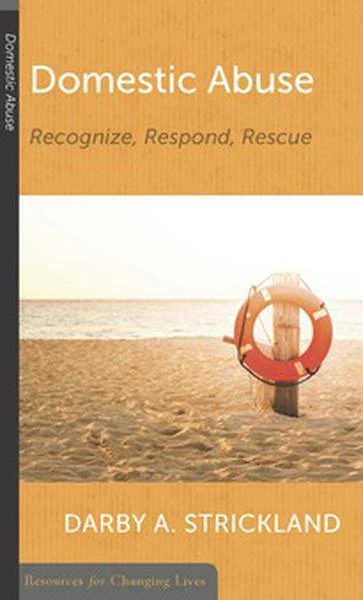
Darby A. Strickland
Reviewed by: Joseph W. Smith III
Domestic Abuse: Recognize, Respond, Rescue, by Darby A. Strickland. P&R, 2018. Paperback, 56 pages, $3.00. Reviewed by OP elder Joseph W. Smith III.
When was the last time you heard an explanation of the bramble story in Judges 9? How about some solid biblical teaching on domestic abuse? If you’re like me, your response is, “Maybe never.” Darby Strickland manages both in this excellent booklet. Rather than “abuse,” Strickland prefers the more scriptural term “oppression.” She then provides tools to identify marital oppression—specifically, a series of pointed questions such as, “What happens when you disagree with your spouse?” and, “Do you ever feel fearful around your partner?” (5). Later, Strickland articulates seven common traits of oppressors, including their feeling of entitlement, desire to maintain control, and tendency to view themselves as victims (28). She likewise warns that abusive spouses often manipulate counseling situations to their own advantage, dominating the discussion while making it look like marital struggles are the wife’s fault.
Strickland also lays out specific principles for assisting both victims (protecting, comforting) and oppressors (confronting, reorienting the heart). One of her most vital recommendations is patience, as the process of disentangling can seem to take forever. Best of all is the author’s frequent use of Scripture, including Ecclesiastes 4:1, 1Thessalonians 5:14, and Psalm 69.
Most powerfully, the brash, bragging bramble in the parable told by Old Testament figure Jotham (Judg. 9:7–15) is presented as a textbook example of oppression. Rather than providing protection and shade like the other trees, the bramble hurts, chokes, and threatens—and those who seek to rescue people from its clutches often find victims almost hopelessly ensnared in unyielding barbs. Strickland beautifully contrasts this thorny menace with Jesus, the genuine Servant-King who yielded control for our sake, and who also provides fruit, shelter, and protection. This serves not only as a refuge for suffering victims, but also a model for abusers, if and when they decide to seek a more Christlike form of marital leadership.
November 09, 2025
November 02, 2025
October 26, 2025
October 19, 2025
October 05, 2025
Raising Sexually Faithful Kids and
Parenting Boys and Girls in a Gender-Confused World
September 28, 2025
Calvin’s Ecclesiology: A Study in the History of Doctrine
September 21, 2025
© 2025 The Orthodox Presbyterian Church